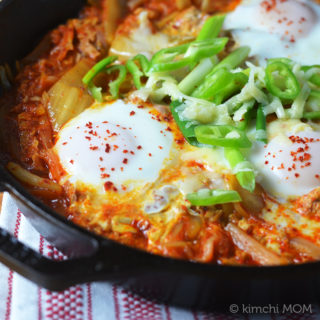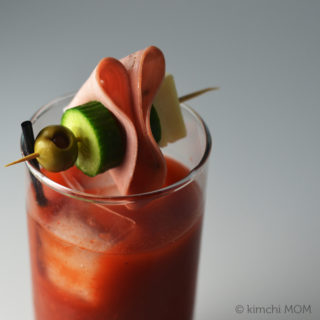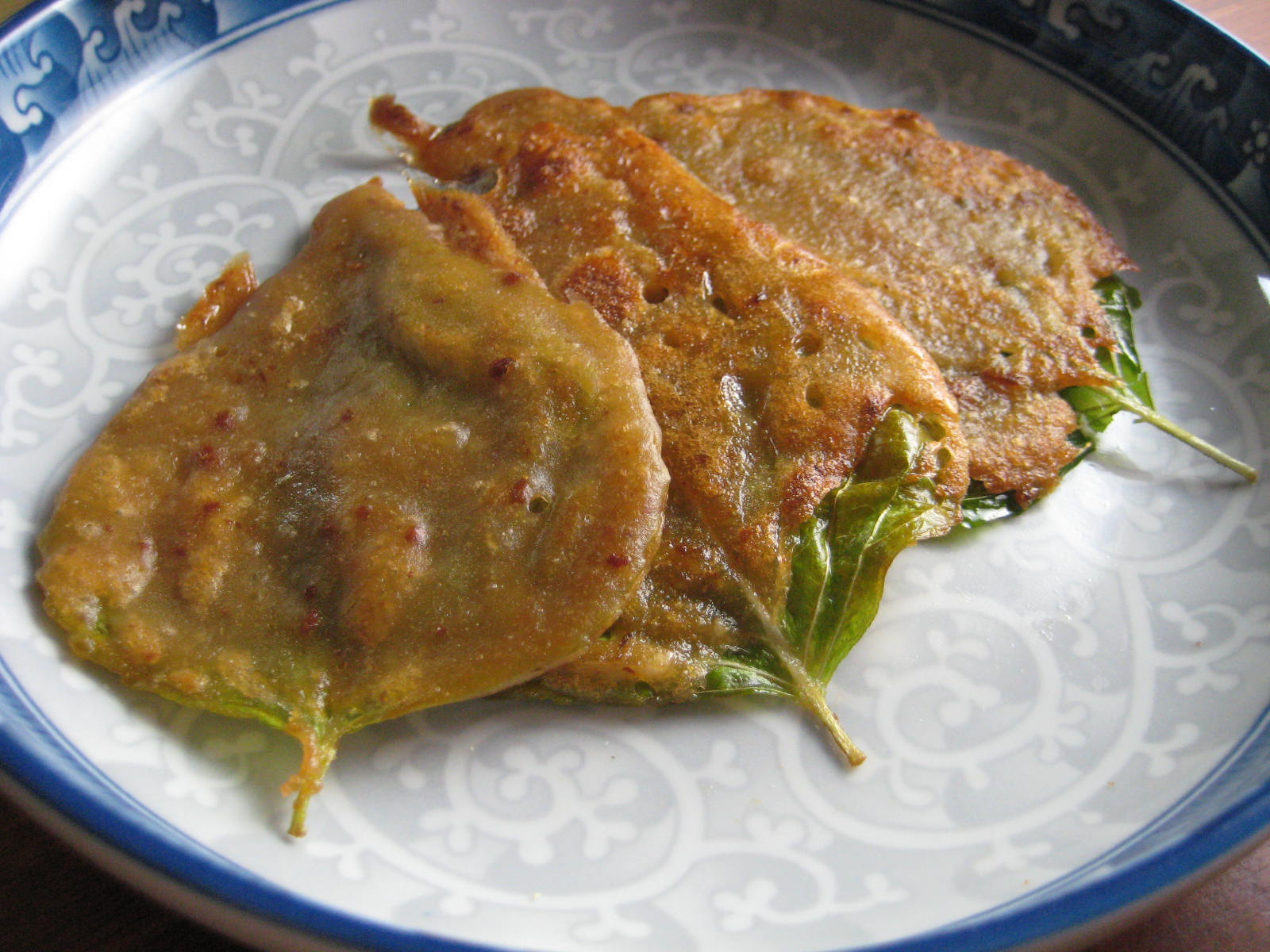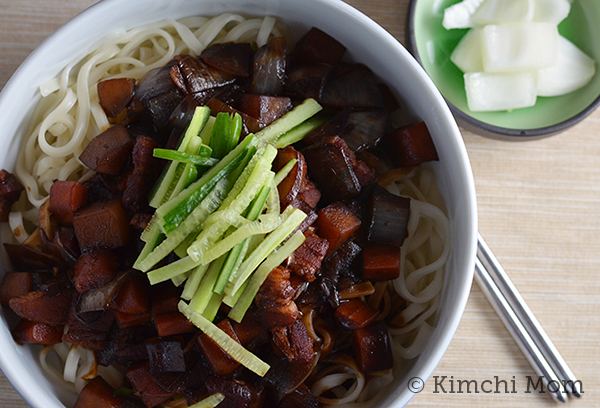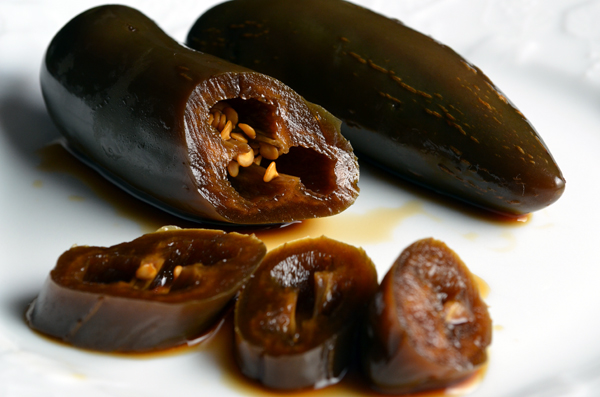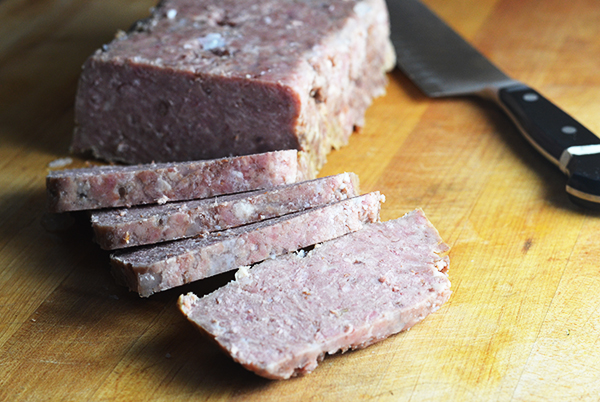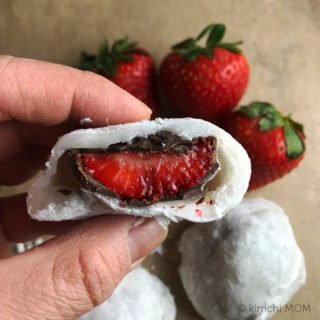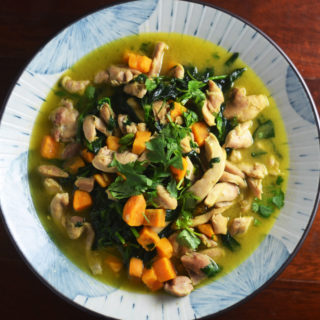 Continuing with the theme of “The Nine Lives of Kimchi”… I actually saved the same jar of percolating kimchi that I used last time. Surprisingly enough, it was still usable and it had actually reached perfect sourness for kimchi jigae. Awesome. I have made various versions of kimchi jigae in the past 20 or so years of my life – some more successful than others. My mom rarely made it when we were growing up, but I eventually found a hankering for it when I was in college. I made it often (my poor suitemates) with a can of tuna and and a can of chopped clams thrown in making it a poor man’s hae mul kimchi jigae. Fortunately I was naive enough to not care about the sodium content of that recipe. Later versions included onions, beef or SPAM (yes, you read correctly), and sometimes dwaen jang. All producing bowls of sour, salty goodness (admittedly, sometimes not so good, but always edible) which made it the perfect accompaniment to white rice.
Continuing with the theme of “The Nine Lives of Kimchi”… I actually saved the same jar of percolating kimchi that I used last time. Surprisingly enough, it was still usable and it had actually reached perfect sourness for kimchi jigae. Awesome. I have made various versions of kimchi jigae in the past 20 or so years of my life – some more successful than others. My mom rarely made it when we were growing up, but I eventually found a hankering for it when I was in college. I made it often (my poor suitemates) with a can of tuna and and a can of chopped clams thrown in making it a poor man’s hae mul kimchi jigae. Fortunately I was naive enough to not care about the sodium content of that recipe. Later versions included onions, beef or SPAM (yes, you read correctly), and sometimes dwaen jang. All producing bowls of sour, salty goodness (admittedly, sometimes not so good, but always edible) which made it the perfect accompaniment to white rice.
Kimchi jigae is actually really easy to make. Most recipes just require throwing everything in a pot and simmering it for about 20 minutes which is fine. I start out by browning my meat (either beef or pork works, but traditionally pork is the meat of choice) and then throwing in the rest of the ingredients. Again I like the brown bits (fond) for just a bit more flavor. Recently, I’ve been using sunchang dwaen jang which my mom bought for me when she was visiting us. She says it’s supposed to be like a “homestyle” or a more rustic style of dwaen jang (see picture of the label). I really like it. It’s a lot mellower than the regular stuff. Anyway, the following is the recipe that works for me these days. It’s not loaded up with canned goods and it’s not so jjah (way salty). It’s pretty basic.
Kimchi Jigae (spicy kimchi stew)
Ingredients
- 1 to 2 Tablespoons cooking oil
- 1/2 lb. sparerib meat I prefer the St. Louis cut which is the rib meat without the bone.
- 1-2 Tablespoons dwaen jang fermented soybean paste
- 2 to 2 1/2 cups kimchi best when it's 4-5 weeks old
- 1/2 cup of kimchi "juice"
- 3 cups water
- 1 14 oz. pkg of tofu cut in cubes.
- 1 or 2 green onion stalks cut in 1-inch lengths (optional)
Instructions
- Heat cooking oil over medium high heat. Add pork. When close to being fully cooked or light pink, add the dwaen jang and cook for another 3-5 minutes or until the pork is evenly coated. I find that adding the paste at this time mellows the paste out, but it also adds a nuttier flavor overall. Add kimchi, kimchi "juice", water, tofu and green onions. Bring to a boil and then simmer covered for about 15-20 minutes. Serve with white rice and enjoy!
Click here for the video.


